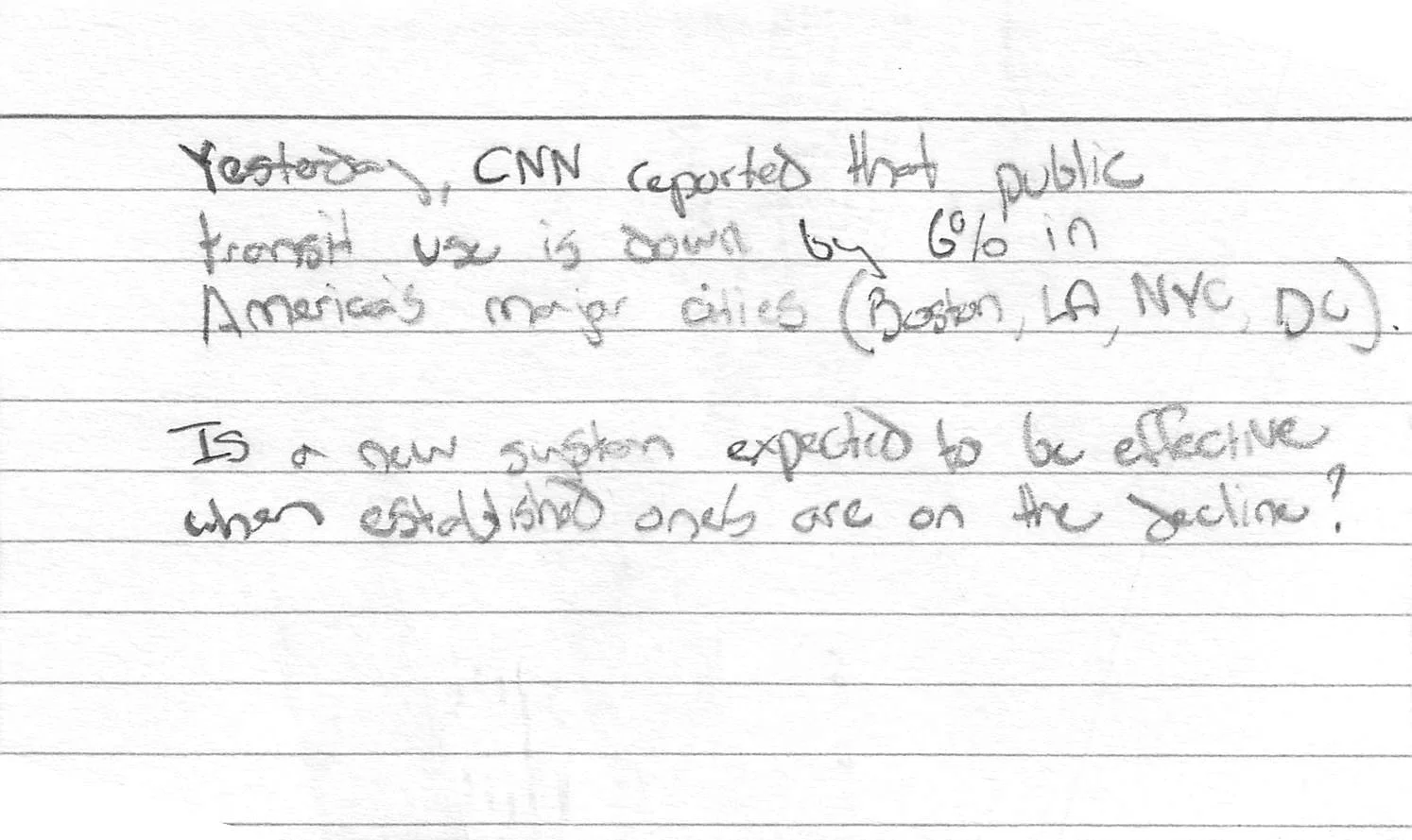A while back we collected a bunch of great, frequently-asked, transit-related questions from folks. We passed them along to Nicholas, our resident expert, and now have a stack of answers to share with you. If you've got something to #AskNicholas, just let us know!
Question: CNN has reported that public transit use is down by 6% in America's major cities (Boston, LA, NYC, DC). Is a new system expected to be effective when established ones are on the decline?
Nicholas: Transit ridership in major cities has dropped for a variety of reasons (and we don't really know why), but we do know that ridership is heavily affected by the cost of car travel and the reliability/convenience of transit.
Gas prices in 2011-2014 were about $3.50 a gallon, while in 2015 they dropped a dollar and in 2016 they dropped another 25 cents. Everyone makes individual choices as to how to get around, but, on the margins, lower gas prices will reduce transit use and vice versa. There's often a lag as well, as people decide whether or not to buy a new car based on gas prices.
Additionally, many transit systems have not put the necessary money into maintenance, which has caused frequent vehicle and system breakdowns. This is particularly true in the New York City metro area, which has about 40% of the nation's transit trips. New York state, which runs the subway and two of the three commuter rail lines, has severely underinvested in maintenance and that has hurt reliability.
People will deal with longer transit trip times (though this does reduce transit use), but they really hate when they can't depend on transit. Folks who dislike slow, unreliable transit are responding to the same realities as people who dislike slow, unreliable highways, and if transit infrastructure is not kept in a good state, just like roads, people won't plan their lives around it.
GRTC has a very young fleet of buses, now halfway through a full conversion to quieter compressed natural gas, and buses are generally very clean and reliable. The Pulse's dedicated lanes will mean less chance of getting stuck in traffic. Transit agencies that continue to keep their system in good order will be rewarded with higher ridership, so that will always be a focus if we're to keep our system running well.

